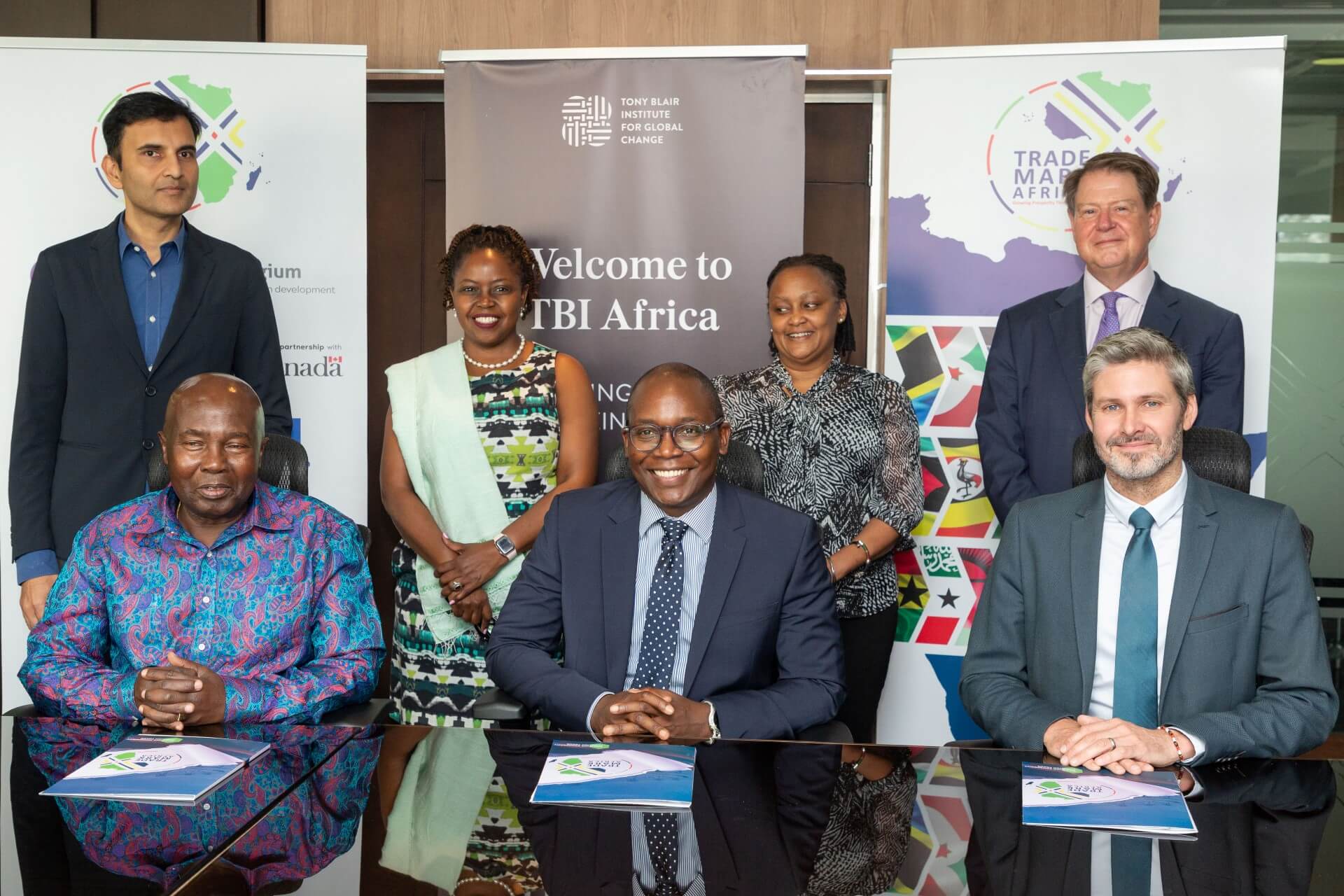Nairobi, 28th February 2023: Leading aid for trade organisation TradeMark Africa -TMA (formerly TradeMark East Africa), global Government advisory organisation Tony Blair Institute (TBI) and catalytic fund Trade Catalyst Africa (TCA – a subsidiary of TMA), have today signed a Memorandum of Understanding (MoU), to closely collaborate in trade facilitation and trade finance in order to grow trade across Africa.
The three organisations will work closely to facilitate trade development to support implementation of the Africa Continental Free Trade Area (AfCFTA) which became effective in 2021. The AfCFTA aims to create a continent-wide market of $3.4 trillion and 1.3 billion people, where goods from one corner trade freely in another. If fully implemented, the AfCFTA could lift thirty million people out of poverty by 2035 based on trade between African countries growing by more than 50%.
The success of AfCFTA – and of greater trade integration more widely – hinges on the removal of trade barriers across Africa. These include significant transport infrastructure gaps, cumbersome and unautomated trade processes, and differing customs regimes that delay goods moving freely.
TMA, TBI and TCA will be deploying their strong expertise in trade facilitation projects, policy advice to governments and innovative finance to help resolve these trade bottlenecks. Past interventions by the three organisations in Africa include supporting the implementation of trade corridor efficiency programmes, delivering tech-based solutions for trade licensing and customs administration, helping governments harmonise and automate trade standards, generating holistic government trade and export promotion strategies, and facilitating trade and infrastructure finance.
Speaking at the MoU signing, TMA Chief Executive Officer David Beer welcomed the partnership as one that will create the right synergies in driving economic growth:
“At TMA we are proud of the trade facilitation that we have undertaken across the East, Horn, and Southern Africa over the last decade. This has made significant contributions to reducing the time and cost of trade, as well as expanding exports. We are excited to build on this through our collaboration with TBI and TCA, so that we can help realise the aspirations of AfCFTA member states, in creating a truly seamless trading environment in Africa”.
TBI Managing Director Rishon Chimboza hailed the closer partnership as one that will support unleash the Continent’s trade potential:
“Unleashing the power of trade in Africa could lift thirty million people across the Continent out of extreme poverty by 2035. This agreement is a very significant step that harnesses the strengths of TBI and our partners – TradeMark Africa and Trade Catalyst Africa – and catalyses common cause in growing trade and supporting implementation of the African Continental Free Trade Agreement.”
TBI Director, Trade and Infrastructure for Africa Frank Matsaert said:
“Today we are signing into being Partnerships for Impact – with the Tony Blair Institute for Global Change (TBI) working together with TradeMark Africa and Trade Catalyst Africa – we can achieve much more impact than by working alone. We will aim to catalyse investment into infrastructure and trade finance; support trade reforms and better trade facilitation; help agricultural and manufactured exports grow, and most importantly help Africa’s Continental market blossom to create millions of jobs across Africa.”
TCA Chairman Patrick Obath welcomed the MoU as taking effect at a time when intra-African trade is gaining momentum:
“At TCA, we will be supporting commercially viable trade infrastructure projects across the continent to complement public and donor funded projects. This is key to addressing the significant physical infrastructure gaps that currently make it hard to move goods from one region to another efficiently. We will also provide trade finance to businesses, which is a lifeline for many traders. Partnering with TMA & TBI will undoubtedly expand the scale of our interventions.”
The MoU spells out the key areas of collaboration; namely: trade facilitation, standards development, support to the AFCFTA implementation, digitisation of trade processes, industrialisation, trade infrastructure and green logistics, support to cross border traders, and knowledge sharing.
The Parties will decide on a project basis to conduct joint scoping, strategic political engagement, co-investment, fundraising and proposal development, joint analysis, or any other activity beneficial for achieving a project requirement.
Download file













